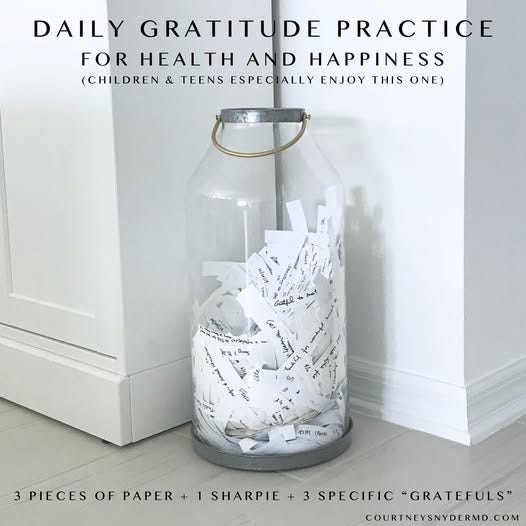Getting Radical With Gratitude
By practicing gratitude, we are priming our brain to scan our days, world, and lives differently.
Upgrade to paid to play voiceover
“If the only prayer you said in your whole life was, ‘thank you,’ that would suffice. - Meister Eckhart
In recent years, the benefits of practicing gratitude have become more widely known. During this time, my experience has expanded to include two more “radical” forms of gratitude that I’d like to share with you.
In this newsletter, I’ll address:
The inc…




